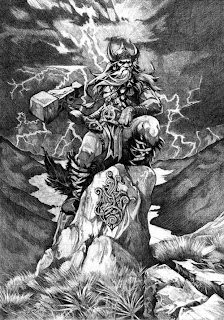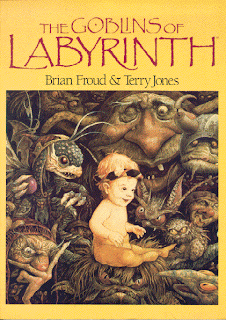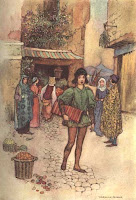Wednesday, December 30, 2009
Thursday, November 5, 2009
Wednesday, October 7, 2009
October is for Storytelling!
 If you love storytelling, than October is your month! As the leaves turn colors, pumpkins start turning up on people's front doors, and the dark starts creeping in earlier, we all get that itch to hear spooky, scary tales. Here is a listing of some exciting Storytelling events - brought to you by the local storytelling group massmouth - coming to the greater Boston area over the next couple of weeks for you to enjoy!
If you love storytelling, than October is your month! As the leaves turn colors, pumpkins start turning up on people's front doors, and the dark starts creeping in earlier, we all get that itch to hear spooky, scary tales. Here is a listing of some exciting Storytelling events - brought to you by the local storytelling group massmouth - coming to the greater Boston area over the next couple of weeks for you to enjoy!Monday October 12 (Columbus Day): Three Apples Storytelling at Shelburne Farm in Stow, from 1-3pm. The Three Apples Storytelling Festival and massmouth have been invited by this wonderful local "Pick-Your-Own" Apple Orchard to come and entertain prospective apple-pickers with stories! You'll find us right by the front entrance, look for the Three Apples banner. Featuring Cindy Rivka Marshall, Nicolette Heavey, Laura Packer, Kevin Brooks and myself, Doria Hughes!
Sunday October 25: Boston-based Baroque Music ensemble Musica Nuova and I will be presenting a collaborative concert at the Taylor House Bed and Breakfast in Jamaica Plain, at 4pm. We will be presenting "The Masque of Bess of Bedlam", the imaginary late 17th century-style tale of one woman's journey from milkmaid to madwoman, using a combination of storytelling and the music of Purcell, Eccles and other Baroque composers.
Monday October 26: Reuniting two old friends that everybody loves, and which go together extremely well - Storytelling and Beer - massmouth is proud to present our very first StorySlam, at Kennedy's midtown in Boston, starting at 7pm. Based on a poetry slam format and similar to American Idol, a story slam is a contest of wit, words and in this case, Story, by known and undiscovered talent. This month's theme is "scared to death ". We are looking for real stories of fear, terror and dread, which may be supernatural or plain as mud. Each of the ten 5 minute stories is judged on how well it is told, how well it is constructed and how well it honors the time limit and relates to the theme. The three highest-scoring tellers are awarded prizes and an opportunity to perform at "the big MouthOff", venue and date TBA. Prizes will be awarded at each slam. There is a $5.00 cover and a one drink minimum. Find out more at massmouth!
Tuesday October 27: "The Masque of Bess of Bedlam" will be repeated at Bates College in Maine at noon.
Thursday October 29: MouthOff at the Haley House Cafe in Roxbury, starting at 7pm. The Haley House Cafe presents massmouth tellers Norah Dooley and Andrea Lovett, telling ghost stories to chill the bones! A mini workshop to follow, open mic at 8pm.
Friday October 30: Hallowe'en Storytelling and Costume Party at the Porter Square Bookstore in Cambridge, starting at 4pm. I (Doria) will be telling spooky stories to celebrate my favorite holiday!
These are just a few of the exciting and varied Storytelling events going on in the Bay State this month. For even more, check out the massmouth events page!
Tuesday, September 22, 2009
Marvelous MouthOff Monday by massmouth

1) Doria (me) went first, with "Mrs Puccini", the tale of my journey into my new identity/hat as Opera Composer's Wife. My husband, Curtis Hughes, is in the midst of birthing his opera "Say It Aint So Joe" about Sarah Palin and the 2008 Vice Presidential debate. There is a mini media circus brewing, which is rather wild for us! For more info on this remarkable work, check out http://www.facebook.com/group.php?gid=7181860398&ref=ts or just google Sarah Palin opera and enjoy the right wing comments.
2) Libby Franck told "Cars and Guys" and took us down Memory Lane to the wilds of Westchester and new Rochelle, where fast cars and fast guys were no match for our Libby! She even crooned a couple of car serenades for us, tributes offered her by her 4-wheeled swains.
3) James McCoy told one of his original rhyming narratives, "Thompson was my only failure", about the life of Francis Thompson, a 19th century poet, Catholic and failed boot-maker. Poignant and sweet, as only James can be.
4) Marty Levin created an impromptu Improvisational work for us, based on three words spat out at him by the audience: "Caleidescope, Fluoridated, Incongruous". He took us on an incredible journey, demonstrating courage and agility along the way. Courage - since he didn't know where he was going any more than we did, but bravely plunged ahead - and a combination of mental and kinetic agility tht has to be seen to be believed. A tour de force!!
5) Kevin Brooks (who NEVER goes by Mr. Packer) told "Cars", a whimsical and hilarious ride through the various cars that have taken him along his life's path to date. That 1972 Volkswagen bus sure brought back memories..... We were all thrilled to hear that his current steed is approaching menopause, and looks to transform into something wonderful and strange in the near future - very abruptly! - which will mean that there will be a sequel to this tale!
6) Laura Packer decided to play, and riffed off of an old familiar tale (The Elves and the Shoemaker) in new and unfamiliar ways. At times frightening, at times sad, but finally hinting at something wondrous and strange and even transcendent, we followed her willingly down unknown paths. Laura doesn't always take us home, but we don't care; we just like to go where she leads. I named this telling "Booty Call".
7) Elsa Zuniga revealed depths of beauty, sadness, hope and love in her as-yet unnamed story about her Father's story. I think I understand why he only told his stories to her; she has a gift for creating stories that are like the sweetest onion you can possibly imagine: narrative layers unfold like rose petals to reveal new layers, and beyond/beneath them, even more. Beautiful, poignant, heart-breaking, yet strangely fulfilling and satisfying to hear.
8) The enigmatically named Marshall gave us a hysterically delightful new/old twist on an old Shelley Berman performance telling that he clearly loved as much as we did. "Hello, Davey!" was revealingly funny, current yet timeless. Rarely has a Storyteller incorporated a prop - in this case, a cellphone - so effectively and seamlessly into his telling. I laughed my ass off, but I did not lose my humanity (thank you Marshall!).
9) Maggie Bush generously closed this glorious evening with her retelling of Zora Neale Hurston's "Roy Makes A Car". Not to be outdone by the earlier and brilliantly told car-tales, this grand Lady of Storytelling told us a wonderful whopper about Roy and his Collision-Proof Car (yes, you read that right). Maggie explained that Ms. Hurston, in an effort to get really great stories from her southern informants, would ask them "Do you know any lies?" With this one, she hit pay dirt, and Maggie showed us exactly why "Roy" is a keeper!
Once again, I thank you all, with my heart filled with gratitude, for coming and telling these beautiful tales. Let's do this again, real soon, y'hear?
Happy Tales,
Doria
Sunday, August 23, 2009
BATV and Yankee Doodle on "Bowen on Billerica" - Billerica, MA - Billerica Minuteman

BATV and Yankee Doodle on "Bowen on Billerica" - Billerica, MA - Billerica Minuteman
Posted using ShareThis
I'm going to be interviewed on a radio station tomorrow, a first for me! The show is called "Bowen on Billerica", and it is my chance to plug my upcoming performance at the Billerica Yankee Doodle Homecoming, alongside of my esteemed colleague and friend Jim LaChapelle. Tune in on WCAP 980 AM between noon and 1pm!
Tuesday, July 28, 2009
There Be Dragons!
Doria tells "The Four Dragons"
at the July 2009 MouthOff hosted by massmouth,
in Central Square, Cambridge, Mass.

I am on a Dragon-binge! Lately, I have been telling stories about dragons; I just can't get enough of them. And I'm beginning to think that here in the West, we have greatly misunderstood these mythic sky-flyers. I particularly love the Chinese legend of the Four Dragons, because the eponymous lizards not only show compassion for those less fortunate than themselves, they also stand up for us puny human underdogs - against a tyrannical Oppressor, no less - knowing that the consequences for themselves will be dire. (The embroidery to the left is from Embroidery Library Inc.)
The dragons in this story have the choice to either live a life of comfort and ease, ignoring human misery, or to make a tremendous personal sacrifice in order to make change. Acting out of compassion and selflessness, they come up against the callous Jade Emperor. The ultimate bureaucrat, this tyrant is totally indifferent to the sufferings of his people, and is roused to action only when he sees that the dragons have dared to exercise their powers to make up for his lack of initiative.
Like Prometheus, the four dragons are cruelly punished for having used their powers to help the human race. However, each leaves a lasting and benevolent mark on the very geography of our human world, so as to ensure our continued survival.
So what, besides dragons, is so compelling about this particular story, and why am I blogging about it? As so often, the villain of the tale is as fascinating as the hero(s). Just what is up with the Jade Emperoranyways? His character - capricious, vindictive, all-powerful, unforgiving, jealous - reminds me of others of his ilk:





The stories tell us that Sky Gods are remote and powerful, all-seeing and unforgiving. Short-fused and quick to anger - like most of his aerial brethren - the Jade Emperor will not tolerate any perceived threat to his authority, and he strikes back as quickly as lightning, with devastating cruelty. The patriarchal Sky Gods rule over their subjects with humorless might, brooking no defiance. And yet, from time to time, someone is brave enough to speak up and take action against these lofty thugs. And that's when great stories are made.
Labels:
Chinese folktale,
dragons,
massmouth,
MouthOff,
Sky Gods,
storytelling
Wednesday, July 1, 2009
Girl Power
At Toscanini's on June 22, 2009,
telling "Tokoyo" for the MouthOff
The story of Tokoyo and the Sea Serpent is one of my special favorites. Set in the far flung Oki Islands, it describes the journey a young woman must take in order to be reunited with her father. It's sort of like "The Journey of Natty Gann", except for the medieval Japanese setting. And the sea serpent.
When her father is unjustly banished by the mysteriously ailing emperor, Tokoyo sets out alone to track him down and find him. Armed with nothing but her father's dagger and her training as an Ama, or pearl diver, the teenager eventually arrives at the forsaken Oki Islands, where inconvenient and unwanted nobles were traditionally sent to live out their days in exile. But before she has the chance to find her father, Tokoyo happens upon a scene of human sacrifice. Every year the islanders push a young girl into the ocean to be devoured by an underwater dragon, an attempt to placate the beast so that it would spare their fishing fleet and not condemn the local population to starvation. Tokoyo volunteers to go in the girl's place and dives into the roiling waves.

Luckily for Tokoyo, her training stands her in good stead, so the scene in the story where she faces off against the evil submarine flesh-eating serpent is very exciting (although it ends badly for the serpent). Tokoyo is hailed as a hero, finds her father, and inadvertently heals the sick emperor. The latter is so grateful that he recalls her father in exile, and the story ends happily for everyone, except for the sea serpent.
This story has inspired a great deal of dramatic art, enjoy!

Labels:
Ama,
Japan,
Oki Islands,
pearl diver,
sea serpent,
The Journey of Natty Gann,
Tokoyo,
Yofune Nushi
Tuesday, May 19, 2009
The Changeling
This video was made on May 18, 2009 at the newly opened Rhone Plaza in Central Square, Cambridge. The occasion was our monthly MouthOff, hosted by MassMouth, a Massachusetts-based Storytelling organization. Stu Mendelson, Norah Dooley and I came up with the theme of "Working Mothers" as a good theme for the month of May, in honor of Mothers Day and International Workers' Day.
I have long been drawn to the story of the Changeling: a counterfeit child left by the Faerie folk in exchange for a human baby who is stolen to replenish the dwindling ranks of that secret and magical race. The Celtic peoples in particular tell many tales in which small children - especially those who have not yet been named or baptized - are stolen away while their mothers are not looking, and replaced by a supernatural substitute. Such stories invariably end with the restoration of the "real" child, usually after the determined mother tricks the Changeling to betray its true nature and threatens it with physical harm. The threatened Faerie being gives back the child, who is none the worse for wear, and all is well.

(from "Labyrinth", my favorite Jim Henson flick)
Or is it?

Stories about healthy children who are spirited away and replaced by sickly inhuman monsters, draw upon a deep and elemental terror that lurks in the heart of nearly every parent: the fear of losing a child. But there is a subtext - and a sub-fear - to the story of the Changeling, which beneath its frightening surface narrative of kidnapping and restoration, presents us with the equally terrifying idea that a baby who seems normal and healthy can drastically and mysteriously change in some dreadful way, with little warning or explanation. Thus, the concept of the magical Changeling is rooted in a harsh human reality: a child who seems "normal" at first, but then shows signs of "inhuman" abnormality. Perhaps some parents - confronted by the sad truth that something was wrong with their child - were comforted by the notion that "this isn't really my child". And so the story of the Changeling was born.
Interestingly, but cruelly, these stories also imply that the terrible transformation/ailment of the Changeling is due to some form of negligence on the part of the mother: she left the child alone for a moment, she forgot to hang rowan berries over its cradle, she didn't baptize the child in the Christian faith, etc. The loss - or transformation - of her offspring is thus presented as a punishment for maternal misdeeds. It naturally follows that she must somehow redeem herself in the eyes of some supernatural authority before she is considered worthy to have her "true" (i.e. healthy) child restored to her. She must perform a mysterious nonsensical ritual, and then - in a parallel of the story of Abraham and Isaac - she must threaten her "child" with violence or even death. Only then will she be rewarded by the return of her little one.
The moral of this story? Be a good mother, or else.

Saturday, May 2, 2009
Dawn of a Literary Friendship

Dawn of a Literary Friendship (<- this is a live link, go ahead and click!)
Posted using ShareThis
Posted using ShareThis
My late grandfather, Robert Phelps, was a very different kind of storyteller than yours truly, but there is no doubt that he had a way with words, especially when he took the time to write them down. Arguably, his true and preferred mode of expression was epistolary, and it is a testament to his particular genius that, decades after his passing, his friends (in this case, Jim Salter) and relatives have kept and treasured his letters. They are each gems of his own unique brand of distilled wit and wistful wisdom; well worth reading, and re-reading.
In our brave new world of Twitter, blogs, e-mail, facebook, and instant messages, a good old-fashioned letter has a compelling beauty that has the power to connect us with another human being in a way that is increasingly rare and precious.
Tuesday, April 14, 2009
Vardiello
You've read about it (see below, for my previous blog posting), now you can watch it! Last night, I performed "Vardiello" at our April MouthOff, hosted by MassMouth and the ever-gracious staff of Toscanini's, in Central Square, Cambridge, MA. To enjoy the other storytelling performances, please click here (my MassMouth video page)!
Monday, April 13, 2009
Fooling Around

"Loudly sing cuckoo!" So said a wise man once. April is a wonderful time to explore tales of Fools, Numbskulls, and Noodleheads, and I recently had the pleasure of performing one such story. Known as Tale #4 of the Neapolitan Giambattista Basile's famous collection of elegantly re-worked folktales called "Il Pentamerone", it is subtitled "Vardiello".
The hero of our tale - the eponymous Vardiello - is a silly fellow who lives alone with his mother, a sensible and intelligent woman, except where her son is concerned. The fun begins when she leaves him home alone to babysit her valuable chicken, currently brooding over a clutch of eggs. Her proactive attempts to protect the hen and its offspring from her son's well-meant "help" result in one absurd household disaster after another. Upon her return, she finds the hen gone, the eggs crushed, her wine spilled, her carefully hoarded supply of walnuts devoured, and her foolish son hiding in the oven after a failed suicide

attempt. And that right there would have been an appropriate ending to this silly tale of woe, but Vardiello was only getting warmed up!
Why his mother gave him a second chance, we'll never know; her persistent albeit unfounded belief in Vardiello's mental capacity is the underlying engine upon which this story runs. This time, she tries sending him out of the house, with the goal of selling an expensive bolt of cloth (see image above). Fearing that he will be easily swindled by some clever fast-talker, she warns her son to avoid buyers who talk too much. Which results in Vardiello selling the cloth to a statue.
The poor mother's frustration can only be imagined, however Vardiello is not finished! Returning to his customer, with the innocent expectation of being paid for the cloth which he had left at the taciturn fellow's feet the day before, Vardiello is shocked and outraged when no payment or explanation is forthcoming. In a fit of uncharacteristic rage, the poor fool crushes the "man" with a rock, only to find that his client is hollow and contains a large quantity of gold coins!!
Gratified as his put-upon mother is to receive this unexpected but very welcome treasure, she is left with the problem of how to deal with Vardiello. He can't possibly be trusted to keep his mouth shut about all that gold, and what will the neighbors say then? Vardiello's mother now proves herself to be something of a genius: she tricks her son into believing that it is raining figs and raisins; thus, when he inevitably blabs about finding treasure to all who will listen, he explains that his good fortune occurred on the day when fruit fell from the sky. Pitying him as a supposed madman, a concerned judge sends Vardiello away to a madhouse, leaving his mother - with the gold - in peace at last.

What fascinates me about this complex and episodic story is the connections it has to other tales and tale-telling traditions. For instance, Vardiello's mother attempts to prevent him from eating her carefully saved stash of pickled walnuts, by telling him that they are poisonous. Ironically, her precaution backfires when Vardiello decides to take his own life for fear of facing his mother's wrath, having killed her chicken, crushed its precious eggs (in an attempt to keep them warm by sitting on them), and inadvertently poured the contents of an entire keg of wine on the flour. Despondently, he eats her all of her walnuts and placidly waits for death's release in his mother's oven.
The motif of the fool who purposely eats hoarded food disguised as poison as an attempt at suicide is found in Isaac Bashevis Singer's lovely collection of Yiddish folktales "Zlateh the Goat and Other Stories" in the story of Shlemiel. Shlemiel is a classic fool in the Yiddish tradition; he tries and tries but simply cannot get anything right! When his wife leaves him to take care of their baby and rooster, he similarly goofs up, although thankfully in this tale there are no fatalities, human or avian. But like Vardiello, Shlemiel fears female retribution when his misdeeds are found out, so he eats his wife's delicious "poison". We, the Readers, chortle knowingly, enjoying the fruits of Shlemiel's "logical" thinking.
Similarly, when Vardiello is tricked into thinking - and then telling - how food has fallen like rain from the sky, there are cognates in other traditions. A wonderful German folk tale called "The Blabbermouths" features a wife who successfully prompts her husband to convince a magistrate of his own supposed madness, when he describes how donuts fell the day he dug up treasure.
The moral of these silly tales? Fooling fools is a complex yet lucrative business for enterprising wives and mothers!

Friday, February 20, 2009
A Pottle o' Brains
Today I went on a story-ramble through a nice old pile of library books and - wouldn't you know - I found a hidden gem: a story that made me smile, and made me think. Actually, it made me downright puzzled for a while. What on earth is a "pottle"???? 



















A pottle, you ask? First off, if you have to ask, you obviously are neither a) from Lincolnshire, England, nor b) extremely elderly. If you were, you'd know right away that a pottle is a unit of measurement, referring specifically to a measure of volume of about 2 quarts - about the amount which could be contained in an old-fashioned tankard of beer, such as you'd see in one of those quaint old prints of English country life. (Take a moment to enjoy "The Sea Captain John Oxenham Enjoying a Tankard of Sack with His Fellow Sailors" by N. C. Wyeth. For more on John Oxenham, read chapter 7 of "On the Spanish Main" by John Masefield)

Note the tankards.
Still with me? Wondering what on earth I found so entertaining about an obscure antiquated English form of measurement? Turns out, it is a crucial detail in a very interesting and entertaining little tale, which features, among other things, a noodlehead. Here goes:

A young fool, tired of his own stupidity, decided one day to remedy the situation. He went to a wise old woman, known for her herbal remedies and general cleverness, and asked her if she could give him - wait for it - a "pottle o' brains". Unfazed by this unusual request, the woman instructed him to bring her the heart of whatever he loved most, and she'd see what she could do. Hey, how hard can it be to fix a dimwit?
Brain + Pottle = Smartypants





Filled with hope, the idiot went home to his mother, with whom he lived, and thought for a while, before deciding that there was nothing for it but to slaughter his mother's fattest hog, since he could think of nothing that he loved more than bacon. The next day, he brought the dead hog's heart to the wise woman, and she posed him a riddle: What runs without feet? The poor young dolt thought and thought, but had no answer. The wise woman determined by this that he hadn't brought the right heart and sent him home to try again.

The despondent dummy cried all the way home, and on his way a young woman stopped him and asked him what the trouble was. He explained and - here's where the story really gets interesting - she offered to marry him!?!
Now, before you go and assume that we now have TWO numbskulls to contend with, consider this: before she proposed to the dope, this smart gal asked him a) if he could cook, clean and mend her clothing, and b) whether he would mind if she was the wage-earner for their household. Amazingly, our village idiot revealed himself to be a regular Martha Stewart in the home, and moreover, he was elated at the prospect of not having to try to make a living as the other men in his community did. The two decided to get hitched the very next day, eager to enjoy the benefits of a non-traditional marriage arrangement.





However, when the dimwit went home to announce his engagement to his mother, she became so upset at the prospect of her son marrying a woman who did men's work and refused to keep house that she DIED.

Right there, on the spot, finis. One can only imagine how the poor idiot wept at the sudden shocking demise of his only parent. Thinking back on how tenderly she had cared for him, fed him, clothed him, tolerated his incurable stupidity, the fool wailed and sobbed and mourned his terrible loss. When suddenly it occurred to him that his mother was the one he loved best in all the world - even more than bacon - and he had another shot at getting his "pottle o' brains"!

Don't worry, there is no Frankenstein scene; the idiot decided to simply bring his dead mother - heart and all - to the wise woman and attempt to get his pottle. Whereupon she asked him another riddle: what is shiny and yellow but is not gold? Not surprisingly, the moron had no clue, and left as empty-headed as before.
After burying his mother, the idiot married his sweetheart and the two were very happy together. He happily cooked and cleaned, while she cheerfully went out to work and earned a very good living.

All was well, except that the fool still secretly yearned to be smart. One evening, gazing at his wife, he realized with a start that she was the one whom he loved best. Taking a risk, he admitted to her that he still craved brains (sorry, couldn't resist), but loved her so much that he wasn't sure how he'd ever get them, since he couldn't bear the thought of killing her to get a pottle for himself. The wife suggested that they visit the wise woman together and see what they could do, but her moron husband doubted she could solve the wise woman's riddles, and told her the two puzzlers she'd already posed him. His wife, to his amazement, immediately answered them.
What runs without feet? Water!

What's shiny and yellow but not gold? The Sun! 

Impressed by his wife's intelligence, the dork agreed to go again to the wise woman and try for his pottle. He presented his wife - heart included - to the wise woman, who asked him a third riddle: What has no legs at first, then two, and then four? The dummy turned to his wife hopefully, who told him the answer, which he then told to the wise woman.
A tadpole! 

The wise woman asked him if he knew the answers to her other riddles; the idiot grinned at his wife and proudly told the answers. The wise woman grinned at the cute couple, and informed the dummy that he now had his pottle o' brains, which were being kept safe in his wife's head, where they belonged. The moron and his wife went home, and lived happily ever after.

So, what's the moral(s) of this peculiar little tale? Here are a few ideas.
1) In marriage, it doesn't matter so much who does what, simply that the important stuff gets done.
2) Being smart is nice, but love is even nicer.
3) A man who can vacuum is worth his weight in gold.
(With apologies to my very dear and VERY smart husband, who happens to be an artist with a vacuum.)
Monday, January 5, 2009
First Night 2009, featuring "Stories From The Stoop"
For First Night 2009, Andrea Lovett and I along with Norah Dooley and Laura Lovett put together and filmed a series of performances by children from the Franklin Park Tenants Association of Dorchester (we call this troupe "Stories From the Stoop") and teenagers from the Prospect Hill Academy, where Norah teaches.
This Persian-Iranian story is called "No Doubt About It". Stanley, Nikhia and Khy-Asia helped me to tell this tale of a boy, his parrot, and a simpleton.
Eric and Stanley helped me tell this Scandinavian pourquoi tale called "Why Bear Has a Short Stumpy Tail", in which sly Fox has some fun at Dopey Bear's expense.
Here are several of the stories that Andrea and I have been teaching our kids for the last couple of months. We had a really good time, and I think the kids did, too. Thank you so much, Norah, for videotaping this terrific event. Happy New Year!
This Persian-Iranian story is called "No Doubt About It". Stanley, Nikhia and Khy-Asia helped me to tell this tale of a boy, his parrot, and a simpleton.
Eric and Stanley helped me tell this Scandinavian pourquoi tale called "Why Bear Has a Short Stumpy Tail", in which sly Fox has some fun at Dopey Bear's expense.
Subscribe to:
Posts (Atom)

